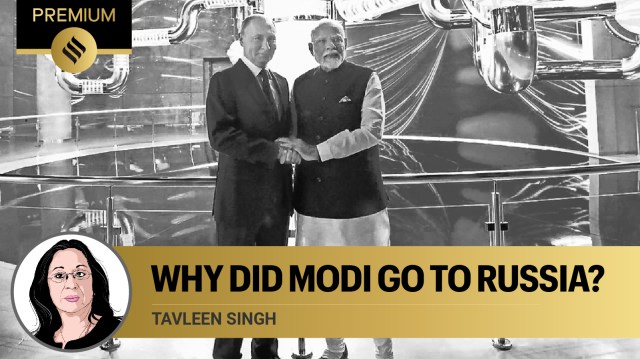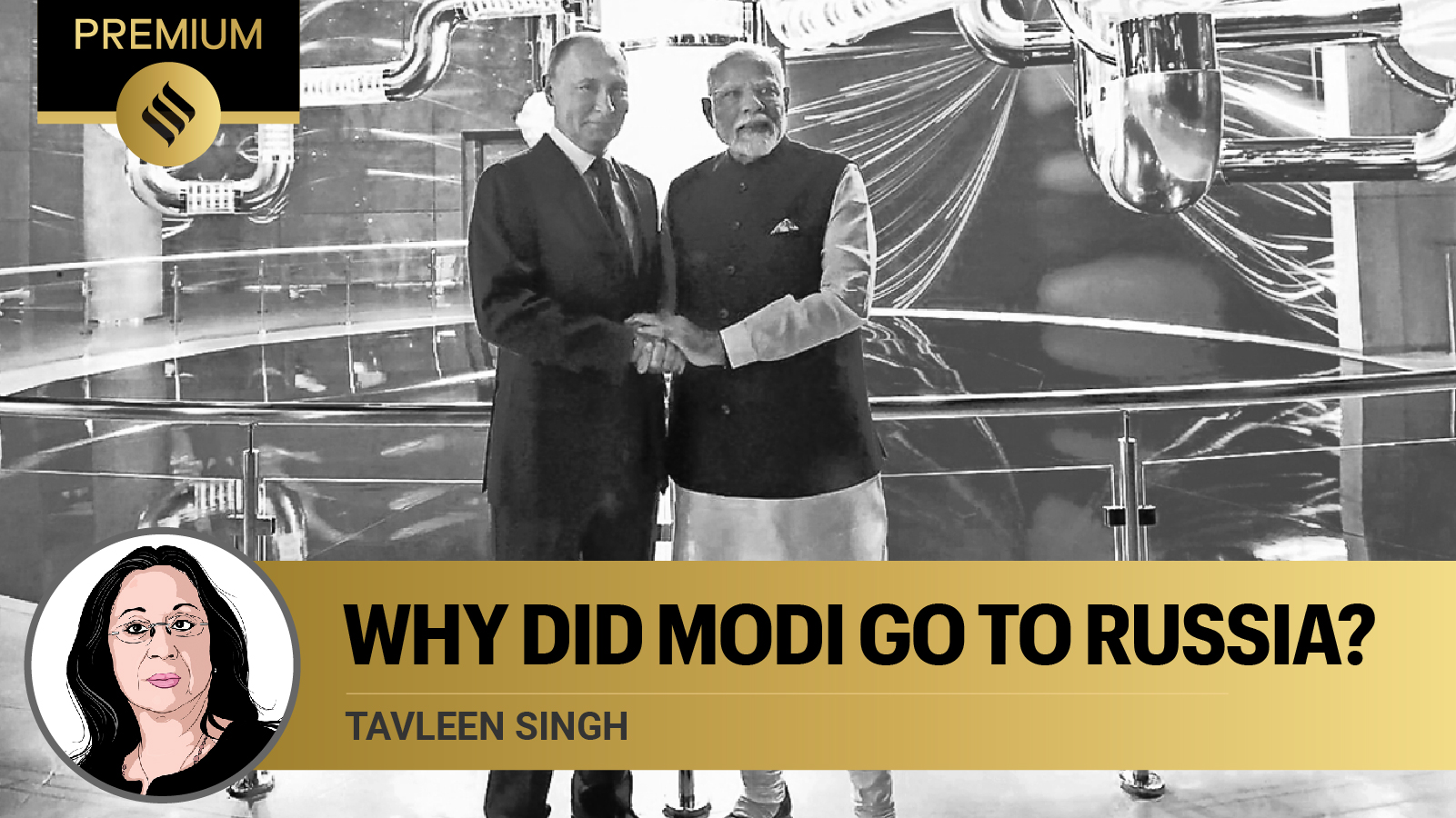
It did not look good for the Prime Minister. Or for India. There he was smiling and hugging Vladimir Putin on the day that the Russian dictator bombed a children’s hospital in Kiev. Then came more moments of bonhomie and friendship as they travelled together in a golf cart and spent the evening in the dictator’s dacha. The next day Modi himself seemed to realise that a mistake had been made and spoke eloquently of how it broke his heart when children were killed in times of war. Then his spin doctors got into the act and leaked stories to the Indian media about how our Prime Minister had once more told Putin that the way forward was through diplomacy and dialogue and not on the battlefield. But the damage had been done.
I spent some time last week trying to get an American view on Modi’s visit and failed. I need not have bothered. The American ambassador in Delhi said it all. He warned that there is no such thing as ‘strategic autonomy’ in times of conflict and warned that friendship between our two countries was better than ever before but should not be taken for granted. “The more we insist on a kind of cynical calculation in the place of a trusted relationship the less we will get…”
In fairness to Modi, he has worked harder to bring us out of the clutches of the Russians than any other Indian prime minister. He has also brought us closer to the United States but in a country in which generations have been brought up on anti-Americanism more must be done, which is why this visit to Russia was a bad idea. We need the Russians for more reasons than can be listed here and cheap Russian oil has been most useful but was there really any need for the Prime Minister to accept Russia’s highest civilian award at a time when Putin is, without question, the most hated dictator in the world?
What Putin has done in Ukraine is the equivalent of China invading Arunachal Pradesh or Ladakh. And why would this not happen in the future? China has made clear more than once that it does not consider Arunachal to be a part of India and has often objected officially to Indian prime ministers visiting the state. So, what is to stop Xi Jinping from turning his attention to Arunachal when he is done with Taiwan? If this happens, will Putin be on our side or on the side of China? Before he invaded Ukraine, he had that very public meeting with the Chinese dictator in which they declared that they were best friends forever.
For me personally, as I have said before in this column, there are no two sides to the invasion of Ukraine. It had every right to want to be a democratic country and that is all that it was trying to do when the Russian dictator decided that democracy was too dangerous to be allowed to flourish so close to his own totalitarian country. Putin is in every sense a vile dictator. He publicly kills opposition leaders by poisoning them in foreign countries. Or torturing them to death in jail cells as happened so tragically with Alexei Navalny. Putin jails journalists on flimsy charges and refuses them a fair trial. It might be in India’s national interest to continue our relationship with him, but can we make it more transactional than it seemed on this visit?
There are other things that the men who handle India’s foreign policy need to keep in mind. The world order is going through a transformation in which there is now an open clash of interests between democracies and totalitarian countries. In the totalitarian camp, led by China, there are countries like Iran and North Korea who have no time for such things as human rights and freedom. In the other camp, led by the United States are democratic countries whose foundational values are liberty, equality and freedom.
They have come together to openly condemn Putin’s invasion of Ukraine and to help that country survive this horrible war and become a full democracy. India has so far refused to take sides because of our old friendship with Russia and because in the India in which I grew up, to be on the American side was to risk being called a CIA agent. Of course, to be called a KGB agent was a badge of honour.
The bureaucrats who surround Modi grew up in that same milieu and appear to still believe that the United States cannot ever be India’s trusted friend. Why they believe that Russia is our forever friend is truly a puzzle. Putin is so dependent on China now that he is virtually forced to kowtow to Xi Jinping. China is without doubt the biggest threat to India’s security so how is this relationship going to work going forwards?
The irony is that to the average young Indian, it is the United States that is that shining city on a hill. It is to American universities they long to go and it is in the United States that they seek to build their lives when India denies them opportunities and jobs. This is something that the Prime Minister needs to keep in mind before going down that broken diplomatic path laid down by the Congress Party.




